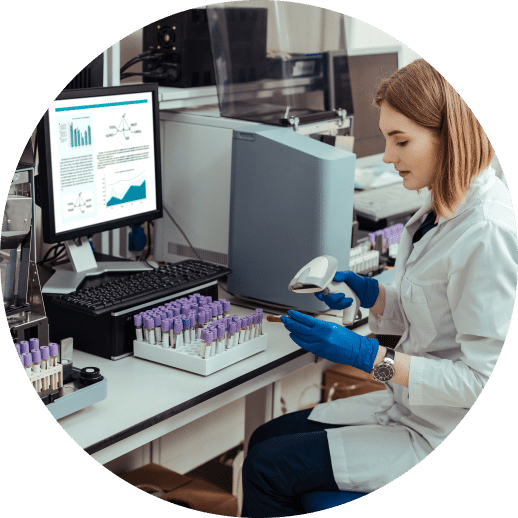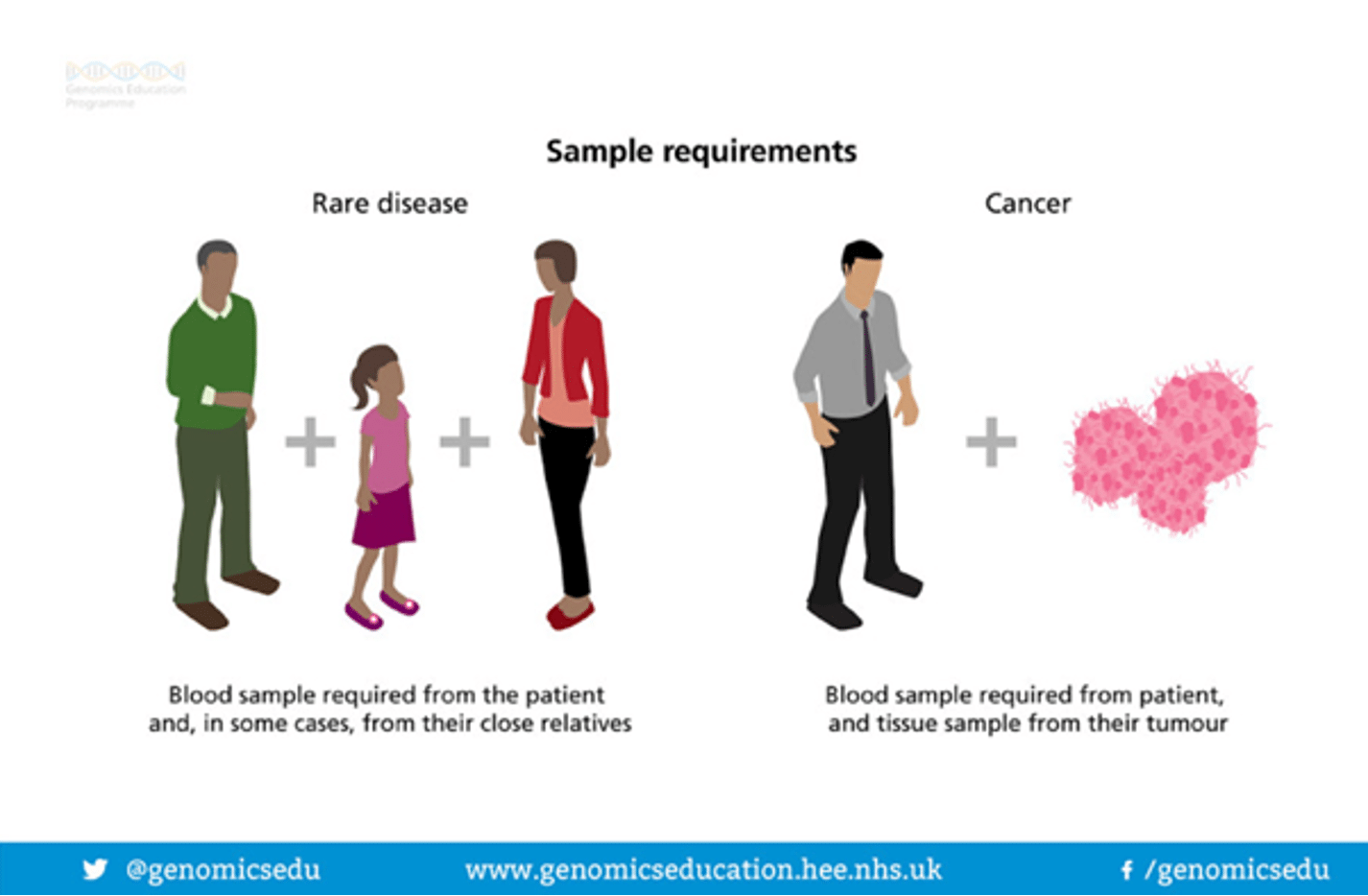What does a genetic test involve?
Your journey will be different depending on which test you have been offered. We have provided some general information here, but please talk to the clinician who has offered you the test for more specific advice.

Consent
Everyone who is offered a genomic test will first have a discussion with a clinician – this may be your GP, a consultant in a hospital, specialist nurse, clinical geneticist, genetic counsellor or pharmacist.
This discussion will focus on potential test results, how you would find these results out, how long the testing process is likely to take, and what the results may mean for you and your family.
Formally signing a consent form may or may not be required depending upon the type of test you have. For whole genome sequencing and most other forms of sequencing tests we do usually ask you to sign a record of the discussion describing everything that was discussed with you. We will offer you a copy of this to help you remember what the test is and what information you may get.
The Test
Genomic testing requires samples of your blood, saliva, or tissue, with the type of sample taken depending upon the condition you have and the type of test being carried out.
Further details can be found below:

Receiving your results and what happens next
The data from genomic tests is analysed by scientists, usually at your local Genomic Laboratory Hub. The time it takes to receive results will vary considerably depending on the kind of test, and your clinical team can give you a rough timescale for when you can expect your results.
This information will then be shared with your clinical team who will arrange an appointment to discuss the results and what they may mean, including treatment plans. Some patients may also be referred for genetic counselling.
How is data used in research?
Genomics is a rapidly developing area. By using data from lots of patients with similar conditions we can learn about rare diseases and cancer, how they develop and then how we might treat them. To do this we will ask patients having genomic tests if they would make their data available for researchers.
Your data will be anonymised before it is used for research, meaning that any information that can link the data sample to you (e.g.name, address, email or phone number) will be removed.
Your anonymised clinical and genomic data will only be used for research if you give your consent for this. Your clinical team will discuss this with you. You will also be asked for your consent to be contacted regarding relevant research projects, where your anonymised data may be made available to clinicians leading UK clinical trials of new medicines and tests.
If you decide not to enter your data into research, you can still have the genomic test and this decision will not affect your clinical treatment.